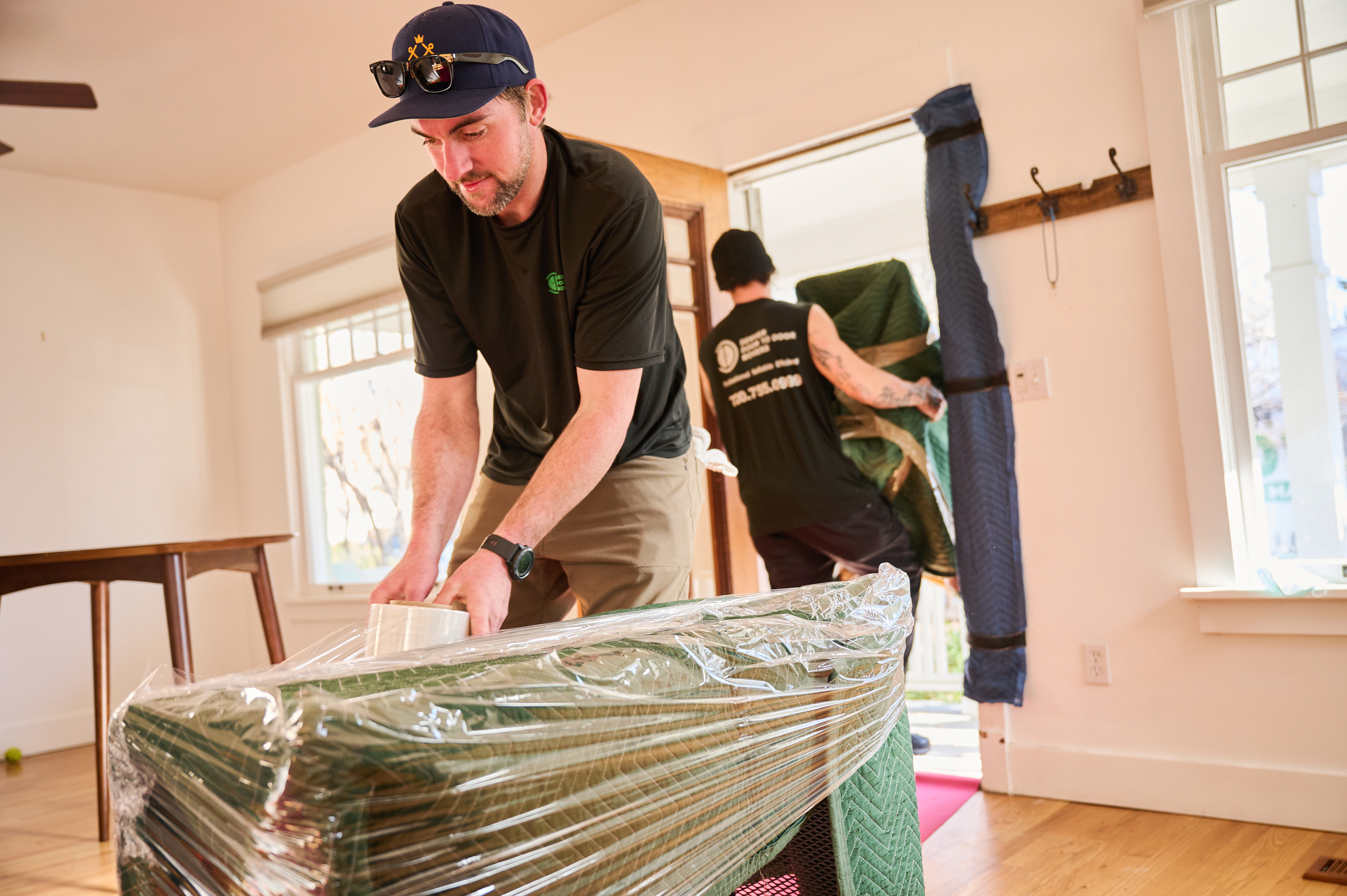
If you’ve ever tried moving a pool table, you know it’s a big undertaking. Here’s an overview of what factors into the cost to move a pool table.
Avoid last-minute packing with this chronological to-do list


Moving to a new place can be simultaneously exciting and overwhelming, especially as your moving day draws closer. While you can always plan ahead, a significant amount of work is packed into that last month, so we’ve organized the major tasks into the four weeks leading up to your moving day. This 30-day moving checklist will help you determine which tasks to prioritize, which can be put on hold, and how much time is required to prepare.

It might feel like moving day is rapidly approaching with just a month to go, but there’s still plenty of time to get everything in order. The first week of moving prep primarily involves planning and logistics.
Day 1: Notify your landlord of the move (most leases stipulate at least 30 days’ notice)
Day 2: Create a moving budget
Day 3: Acquire moving supplies: boxes, packaging tape, bubble wrap, labels, and markers
Day 4: Notify utilities companies about the change of residence and schedule shutoffs to power, water, and internet on your moving day
Day 5: Compare quotes from multiple moving companies or vehicle rental companies if you’re moving by yourself
Day 7: Gather unneeded items and sort them into piles based on what you’re throwing away, donating, and selling
This is a great time to start decluttering. Seeing your house gradually empty out can be emotional, but it will also eliminate the stress of living with haphazard piles and unmarked boxes.
Day 8: Take a trip to the dump and donation center and get rid of unwanted items
Day 9: List any items you plan to sell online
Day 10: Organize a travel plan to your new residence, including the route, timeline, and lodging
Day 11: Gather important documents and keep them in a safe or filing cabinet that you’re taking with you
Day 12: Arrange child and/or pet care on moving day, if needed
Day 13: File a change of address with the necessary parties: USPS, bank, credit card, health insurance, car insurance, and subscription services
Day 14: Schedule time off work for moving day
Day 15: Pack books, decor, rarely used kitchenware, and seasonal items
With moving day just a couple of weeks away, it’s time to start packing non-essential items and cleaning up around the house.
Day 16: Perform minor repairs around the house, if needed
Day 17: Create a mock layout of your new house, including furniture and decor
Day 18: Refill prescriptions
Day 19: Wipe down countertops and appliances
Day 20: Dust, vacuum, and mop
Day 21: Do yard work, if needed
Day 22: Call movers and double-check that they’re coming on the correct moving day
By this point, you’ve completed the major moving tasks. Most of what’s left is just packing before the big day.
Day 23: Pack the bedrooms and bathrooms
Day 24: Pack the kitchen and living room
Day 25: Withdraw cash to tip the movers
Day 26: Pack electronics and fragile items separately
Day 27: Pack a bag of clothes and toiletries you’ll need on moving day or while moving to your new house
Day 28: Empty and defrost refrigerator/freezer, if bringing it to your new residence
Day 29: Take out trash and recycling, and pick up the moving truck if you’re moving by yourself
Day 30: Moving day!

The cost to hire a moving company depends on the move distance and the items' volume and weight. Other cost factors include the time of year, the type of moving service, and the addition of services like packing, installation, and storage.
For local moves within a 100-mile radius, costs range from $880 to $2,565, with a national average of $1,710. The cost dramatically increases for a long-distance move, and the price range becomes much wider based on the distance. The average cost of a long-distance move ranges from $2,700 to $10,000.
Moving by yourself is much cheaper than hiring a moving company. The average cost of a DIY move ranges from $120 to $2,300, with a national average of $1,200. That said, there are several compelling reasons to hire a moving company. Professional movers will complete the job quickly, protect your belongings, and save you time, energy, and the risk of injury. We recommend most homeowners hire a moving company, unless they have the requisite experience, vehicles, and supplies.
From average costs to expert advice, get all the answers you need to get your job done.

If you’ve ever tried moving a pool table, you know it’s a big undertaking. Here’s an overview of what factors into the cost to move a pool table.

It’s easy to determine your shipping furniture cost. Learn how to measure your pieces and choose a shipper that works with your budget.

How much do movers cost? The answer varies based on a lot of factors, but we’ve laid them all out for you here. Plan your budget with our cost guide.

Packing dishes is often an overlooked part of the moving process. Learn how to pack dishes for moving in a safe and strategic way with this DIY guide.

Moving is usually a stressful time, especially if you’re unsure of the rules and regulations. Here’s all the information you’ll need for a successful move.

When you need to move gym equipment, using a few crucial tips can save your back. Learn how to move gym equipment in this informative guide.